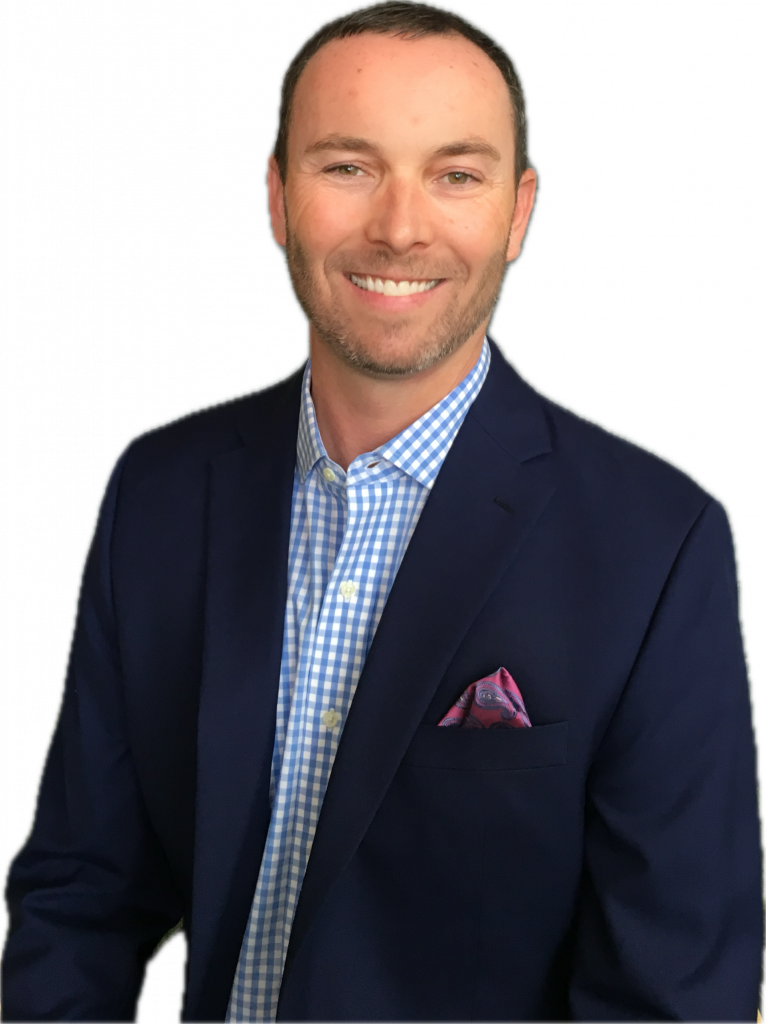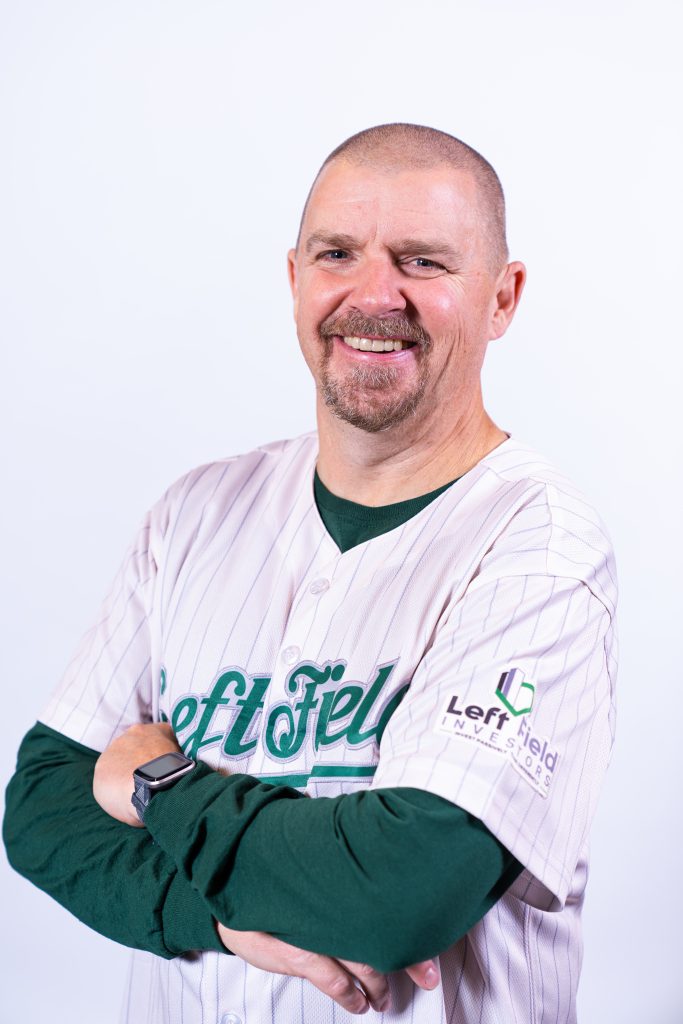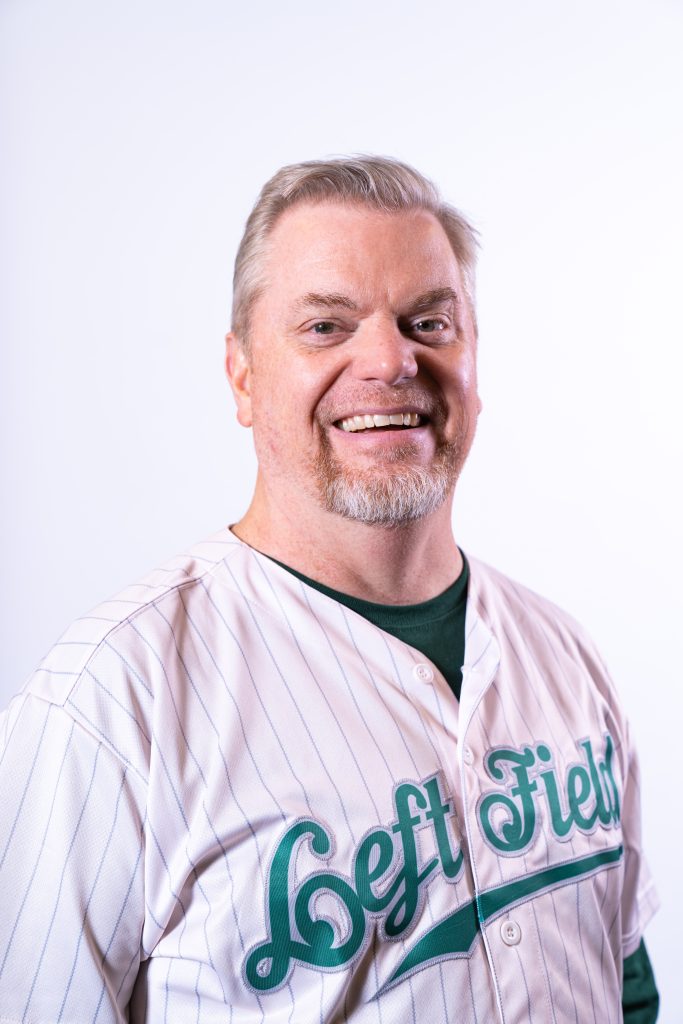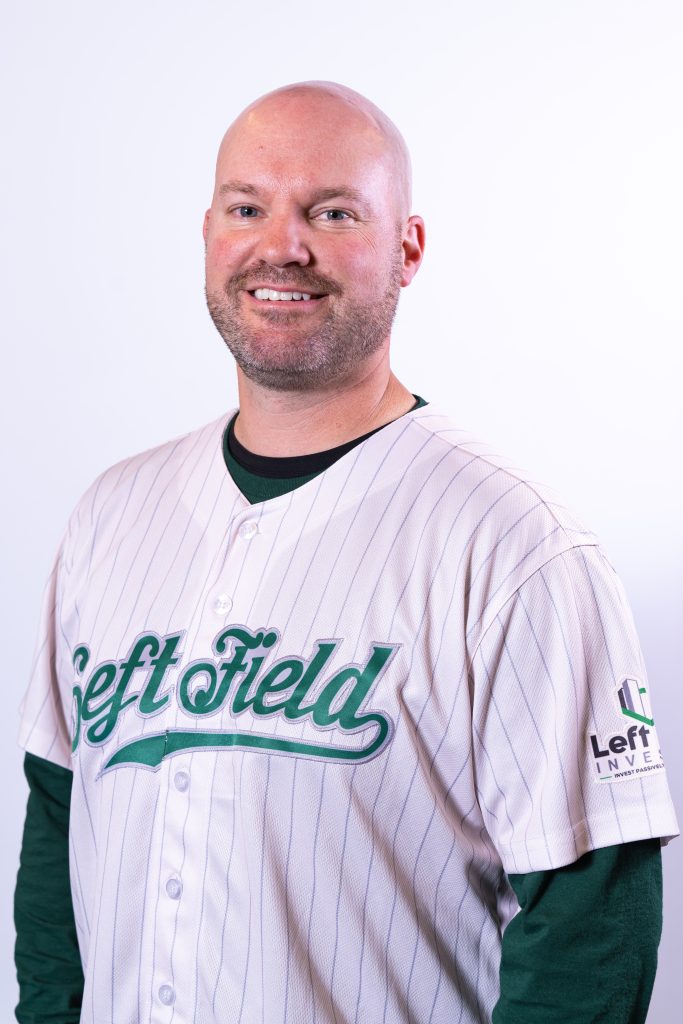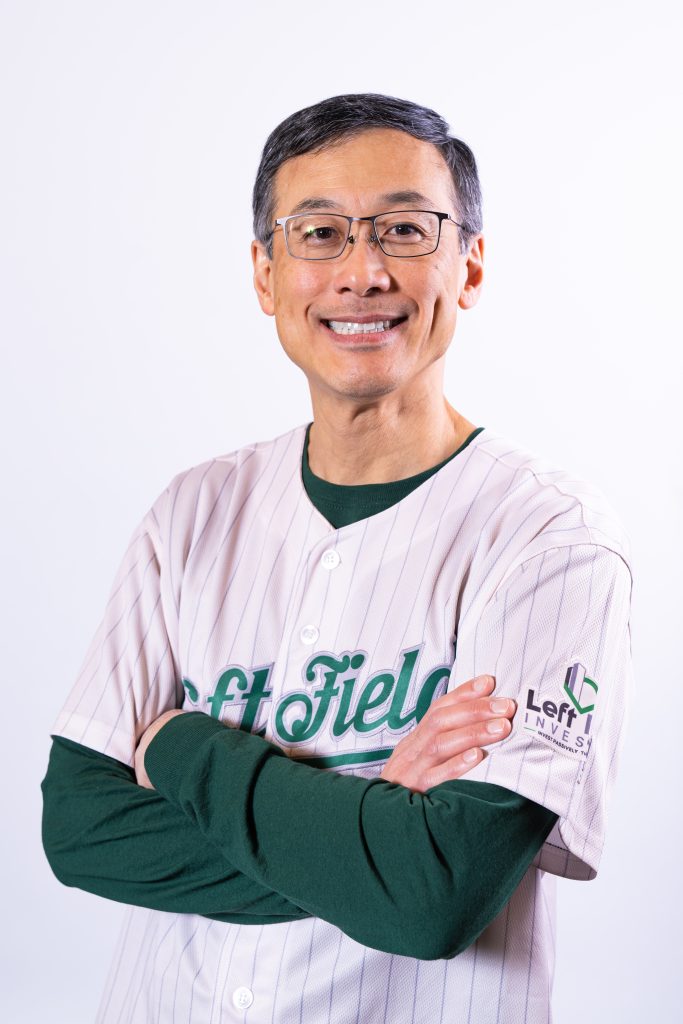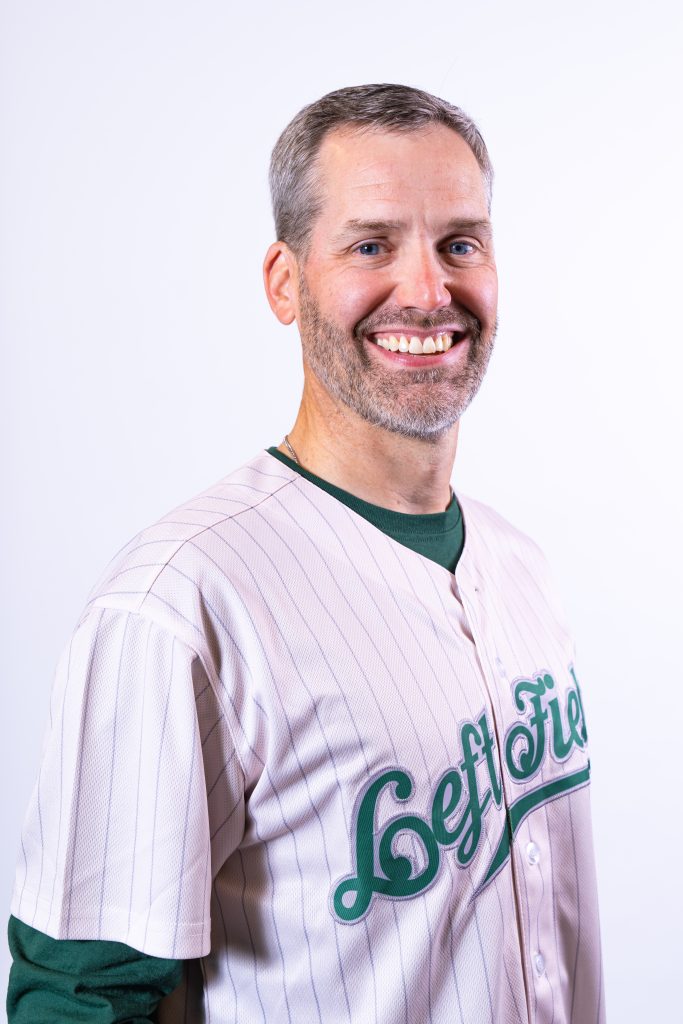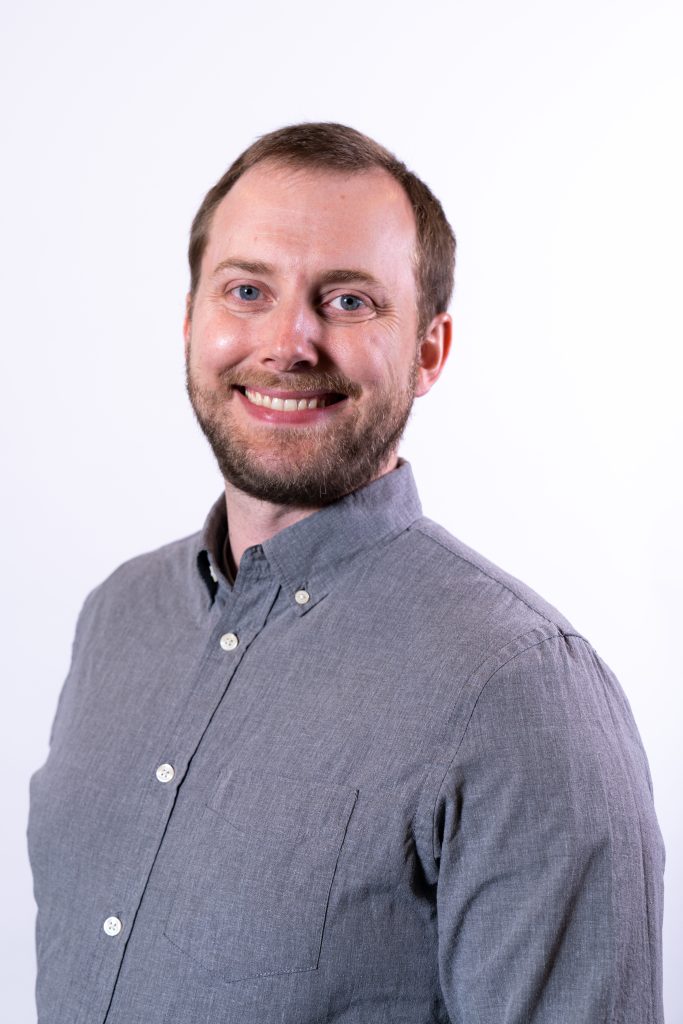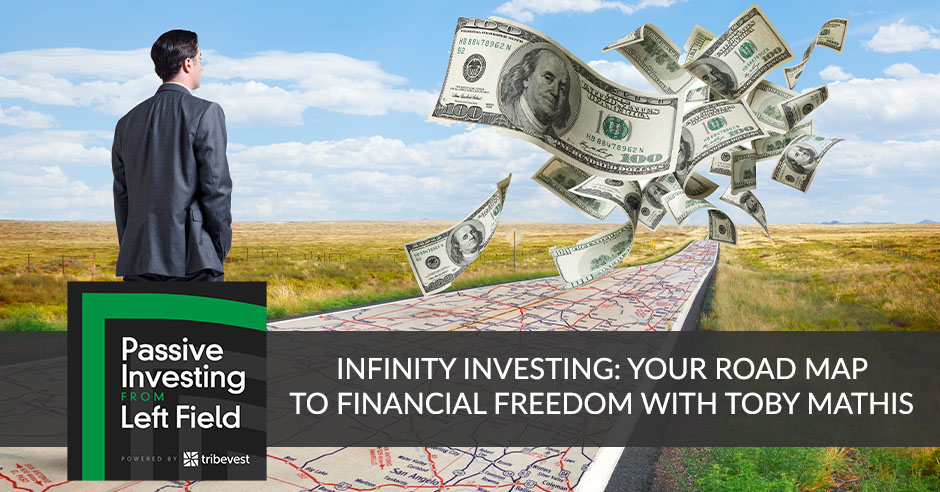
You can’t get rich overnight because it takes time to implement long-lasting strategies that lead to financial independence. The guest in today’s episode, Toby Mathis, founding partner of Anderson Advisors and author of Infinity Investing: How The Rich Get Richer And How You Can Do The Same, is a gifted storyteller and a clear-eyed researcher who spent years studying successful investors who built their wealth by creating a plan and sticking to it. Toby shares his build-wealth-slowly approach based on patient investing and money management practices to reach financial freedom. Most investors try to make money through activity, but most successful investors make money through inactivity. Tune in to hear Toby and Jim Pfeifer discuss these topics and much more in this episode on Passive Investing from Left Field Podcast!
—
Listen to the podcast here
Infinity Investing: Your Road Map To Financial Freedom With Toby Mathis
I am excited to have Toby Mathis with us. He has been a tax attorney for 25 years and one of the founding partners at Anderson Advisor. His career is focused on how to save money and how to make money for him and his clients. As a result of his tax work with tens of thousands of successful investors, including preparing over 100,000 investor tax returns, Toby has pieced together their methods to building wealth and now educates us on that with a surprisingly simple process. He’s also an author. He wrote, Infinity Investing: How the Rich Get Richer and How You Can Do the Same. I read that book. It’s a fantastic read. I recommend it. Toby, welcome to the show.
Thanks for having me, Jim. This is going to be fun.
I’m glad you are here. The way we start is to have you tell a little bit about your journey, how you got to where you are, where you started, and where you are now.
I’m an attorney by trade but didn’t become an attorney to practice law. I became an attorney because I had a mentor who did not like the lawyers he worked with and said they were always deal killers. He wanted people close to him whom he could trust and that understood business. His son and I went to law school, and we both became attorneys. I hung my shingle out on day one. I was always a business owner first. I was always entrepreneur-minded first. I have a strong belief that you can’t advise folks if you don’t understand exactly what they are doing. It’s tough for attorneys to help entrepreneurs and investors if they are not investors themselves.
As I’ve gone through the years, I became an avid real estate investor. I have two really great partners but one of them grew up doing apartment complexes. That’s who I invest a lot with. We are up to over 300 separate properties around the country. We have everything from the apartment building to single-family, etc. I always enjoyed the process. I learned by doing. I love advising and working with other investors. Years went like a heartbeat but you look back and realize, “There are so many deals and stuff that we learned, many mistakes that you make, and you learn from them, and then you can share that with others.”
I’m sitting here at Anderson. We have over 500 folks, attorneys, accountants, and bookkeepers. You name it. I was blessed to be able to work with Forbes to write a book, Infinity Investing on experiences. I will be straight up. I don’t have original thoughts. I get them from my clients who are successful. You will see it’s a collection of stories about people with great philosophies that have worked well for them and others. I got to write that book, and it has been a blast.
I love how you became an attorney to help business owners. That’s a great way to look at it and gives you a whole different perspective on how investors operate. The first question is, since you’ve seen so many investors and people making money, what’s the biggest difference between people consistently making money and those who don’t?
It’s patience. The number one difference that I see is the ability to sit on your hands when the world is going crazy. You hear everybody is like, “The real estate is going to crash. The markets are crashing. This is the worst. We are going to go into a deep recession,” and all that stuff. It’s knowing that a steady hand gets the ship into shore when you are going through a storm. It’s this idea that doesn’t react.
A lot of Wall Street and the real estate world makes its money when you decide to take action and pull the triggers. If you sell a property or buy a property, they make money. They make money through activity. The most successful investors make money through inactivity. They buy and hold. They are consistent and have a philosophy. They marry themselves to it and don’t change. They are good about sitting on their hands when everybody else is running for the exits.
Warren Buffett is probably the classic example of somebody who, “It doesn’t matter whether the market is going up and down, I will consistently buy into it.” Nobody has a crystal ball. Even if you stink and you have the worst timing in the world, if you consistently buy statistically speaking, you are going to be very successful over time. Don’t forget that. Don’t listen to the talking heads on TV.
That’s a great way to look at it. I’ve taken some of the fundamentals of the stock market and all that I learned as a financial advisor and put it into my real estate business. The one big factor besides diversification is dollar cost averaging. I look at now that there are all kinds of uncertainty. Everybody is scared. There aren’t as many deals out there but I’m not stopping. Is that what you are recommending? Don’t sell and stop but keep investing. You might have to sharpen your pen a little bit more but you still want to keep putting capital to work.
They’ve done studies. You come from the financial market, so you’ve probably seen a bunch of this stuff that if you simply bought at the bottom of markets, you are doing better if you are buying both up and down. We were always in that in-between zone. You always think that you can time the market. Nobody can time the market. Nobody knows whether it’s up or down. Maybe you can say, “We are due for a correction,” but you never know.
Studies have shown mathematically that if you consistently buy both up and down and you don’t stop that you are better off than trying to time the market. Even if you were that guy that you bought at the top every single time and consistently did that, you are still okay and realize there’s never a bad time to be buying. Once you can get over that hurdle, then it’s like you said, with the dollar cost averaging, you are better off. At the end of the day, we can look back in hindsight and say, “That was a good time to be buying or that was a horrible time to be buying,” but in a ten-year stretch, it’s not going to matter. That’s what I’ve seen.
Do you recommend then that in times like this, when there’s all this uncertainty with interest rates, inflation, and all that’s going on in the world, I am to keep investing? Are there different asset classes that you pivot into in these types of conditions or are you buying whatever you were buying before? The other question is, what are the best asset classes for the best returns in your mind?
If we are talking stocks, I am basic. I buy good solid companies that have free cashflow that pays their shareholders. I am a big dividend company investor. It doesn’t matter whether the market is going up or down. That dividend doesn’t change. I tend to buy companies that have been increasing their dividends consistently for no less than 10 years, and I prefer 25 years.
If you are familiar with the dividend aristocrats or the dividend kings, those are the types of companies you are looking for because they tend to be recession-proof. They’ve already done this and continue to be profitable. They have a good model around their products. They tend to be good companies. I’m one of those guys that say, “Pick 10 to 15 good companies that you use, like, and understand and invest in those or do the SPY and consistently be buying. I keep it simple like that on that side.

On the real estate market, I believe, and the data backs me up, that we are underbuilt as a country. Every time we get into this weird affordability crisis, it’s because new home builders are building stuff and are jacking the price up, the medium price jumps up, and it runs away from the rental market. I do an analysis of the average home for rent that you can get money on in the median price.
You can see the median price takeoff. A few years ago, it started escalating faster than rents, so we are keeping up. It was too hot, it wasn’t going to be maintained at that level, and eventually, the rental market was going to start playing catch up. It doesn’t mean the market is going to crash. It means that it’s going to level out, maybe some small decline for a period until it catches up.
The good news is that rents are going up consistently. We are in one market where we have a couple of hundred properties. Rents went up 42% in 2021. It’s crazy. Again, it’s putting yourself into a cashflow property. If you are looking for a strategy, I would say its cashflow properties. There’s a ton of room in manufactured housing. That’s one of the few areas where Wall Street hasn’t been able to affect, and there are a lot of individual operators. It’s not sexy as building big apartment buildings.
I also think that storage and RV parks. People always need a place to put their stuff. We have an increasing population, whether people realize it or not. There are lots of people in the United States and lots of people that want to come here. We are going to continue to grow and are underbuilt. There is plenty of opportunity to serve those people and make good money. I would probably avoid high-end properties. I wouldn’t be a flipper unless that’s what you do. You got to be smart. I tend to be not smart. I like buying things and letting them pay me over a long time, and then years later, you look back and say, “I bought it for what? Wow. It’s gone up.”
That is a great strategy. It’s set it and forget it almost. As long as you are buying the good assets and maintaining them going forward, you are going to be happy in the end.
Stats show that. You mentioned we do about 10,000 returns a year. I tend to look at the folks making the most money. I’m always keeping my eyeball on them and what they are doing. It has always been this way. “My grandpa says the stock market is great, and he lives off the stock market.” I already know what that person is doing. They are probably writing covered calls and living off of dividends, so you know what companies they are in. They are not chasing tech stocks.
Tech stocks are great on TV, “It went up 30%.” It’s all that, “It’s sexy and hot.” It gets people to jump up and have a fear of missing out. What’s not sexy is when you say, “Proctor & Gamble raised as dividend again for many years straight, 3M, or Coca-Cola.” It’s not sexy and not doing a lot but paying you for your investment, and you get paid back every quarter, sometimes more often. You are getting this consistent cashflow. If you want to increase it, write a covered call on it. You could set it and forget it and consistently buy more and set it. “We are going to continue to invest in this monthly or quarterly,” whatever it is. Don’t stop. That’s the trick.
The asset prices might go up and down, especially like stocks, Coca-Cola, whatever, and even real estate might go up and down but the cashflow isn’t going to change that significantly. If Coke stock drops 50%, they are not going to slash their dividend by 50% that day. If real estate markets drop 20%, 30% or 50%, rents aren’t going to be cut that fast either. You can still make money in these downturns.
We learned that here in Las Vegas, where I live. In 2008, 2009, and 2010, you had 75% of your values lost in this area. We had rental properties. We were buying properties and still flipping. We are trying to do that in this market. BlackRock or Blackstone was coming in and buying consistently in Vegas and anything under $200,000 was nuts. We had these properties throughout that time, and the rents didn’t go down. The rents started to slightly go up because people needed a place to rent. It was like one of those a-ha moments. You are looking at everything other than what’s working.
There’s all this devastation out there. All these people are coming in and buying up Las Vegas. If you had a $1 million home, you couldn’t sell it for $300,000 but if you had a $200,000 home, they were bidding it up and going over asking. It was craziness. People needed a place to live, and investors realized the rents were good. That was one of those epiphanies. It was like, “I want more of those.”
Vegas got to run up and was too hot so that you couldn’t get a great cap rate off it. They looked at where they could get a good cap rate, so you go to Indy, Ohio, Kansas City or go different places. We bought a bunch in Oklahoma City, Houston, Birmingham, and Memphis. You go into the usual suspects. Places where they have lots of folks that need rental properties, and the houses, haven’t been run up.
We’ve done well with it. We don’t intend to dump anything. Looking at it going, “It’s a nice little cashflow machine.” You wake up, and money is going to come in, and you don’t have to worry about it. Everybody is screaming about the meltdown and the Fed raising interest rates, and you are like, “That’s going to affect a lot of markets but not mine.”
That’s one of the benefits, the freedom of this type of investing. When the stock market goes down, honestly, I don’t even notice anymore because I don’t care. I probably should notice more than I do but I’m like, “I don’t have that much money in there.” The stuff I do, as you said, it’s dividend-producing and going to be fine. I can take that worry out of my worry bucket.
I still look at that when they say, “You were paid this dividend.” I like looking at that because it’s long-term capital gains or qualified dividends. It’s a good tax rate. I like seeing that the money is coming in. I do pay attention to the free cashflow of the company. I don’t care about their stock price, though. It’s like having a house. Could you imagine if you had a ticker signal over your house? Every day you drove home, and it told you what your house was worth. It’s going up and down and driving you crazy.
All of that makes you do things you shouldn’t do. “My house is worth a lot. I should sell it.” You are doing stuff you shouldn’t normally do. Do you like your house? Is it the house you love? Do you need to sell it? Why are you thinking about it? We do that in the stock market, and people will start to do it on their rentals and I’m like, “Stop doing that.”
It’s cashflow investing. That’s what it’s all about. That’s what you are talking about. I want to go through some of the questions or topics you had in the book because it nailed a lot of great stuff. One of the first is that everyone talks about financial freedom but what does that mean? What is financial freedom?
It’s not having to work. It’s getting to do what you want to do when you want to do it. To me, it was like getting hit in the head with a sledgehammer when somebody said, “How many days could you go without working? If you lost your job, how many days would you be able to survive off your passive income? How long would you be able to do that?”
If you went on vacation, you said, “I’m going to go on vacation for X number of days,” how many days could you do that where you could leave your job and not have an income? I never thought about it. I was doing my own calculations and was like, “I don’t have enough passive income coming in to replace what I spend.” I said, “I’m going to start focusing on rents, royalties, dividends, interest to a certain extent if you are a lender, and capital gains if you like to sell covered calls.”
I looked at the things that I don’t have to work for and started adding up that. Once that amount exceeds your expenses, you will never have to work again. You can leave your job or quit doing what you are doing. It’s nice not to have to go to work if you don’t want to. It’s not that you don’t. Most people work hard, love doing what they are doing, and would do it for free. If you are in a situation where it’s like, “I don’t have to do it,” that’s financial freedom. It is the ability to say if you and your spouse or significant other or you wanted to do it yourself and wanted to go travel the world. You could do it, great. That’s financial freedom to me.
[bctt tweet=”Financial freedom is the ability to say, You just wanted to do it yourself and wanted to travel the world, and you could do it.” username=””]
That makes a lot of sense. As you are talking about, true wealth can be measured, and how many days of financial freedom you have. How many days can you last without having to go get a job? Once you get to, “It’s the rest of my days,” then you are free, and you have options and choices. That’s what we are working for. It’s not that we are trying to get wealthy beyond imagination. We are trying to get to where we have options. At least, that’s how I look at it, and that’s how you explained a little bit too.
We saw it in 2008, 2009, and 2010. We have people that say, “I have millions of dollars of real estate. I have all this equity but I’m going to get foreclosed on because I can’t make a payment.” They lost their job and were all saying the same thing, which is, “I’m a millionaire,” and I will be like, “That doesn’t matter. You can’t service the debt. You don’t have any income coming in. They are going to take it from you. You are going to lose it all. You end up in bankruptcy and in that horrible process.” You saw people that had equity in their houses. They may have owned their house outright. They lose their job and can’t access that equity.
I remember people were real estate rich and cash poor. You can’t just have real estate. It needs to be producing income. You can’t have a stock portfolio. It needs to be producing income. If you have enough income coming in, it doesn’t matter what the portfolio is worth. It doesn’t matter what your real estate is worth. You don’t need to borrow from it. You have enough money coming in. If you want to leverage it, you certainly can but you don’t need to and are not in a situation where you are forced to. Going through that experience colored that philosophy. It was like, “You saw people getting smoked,” when they shouldn’t have. They bought the wrong stuff.
In your book, you talk about financial imprisonment. Can you explain what that means? What is financial imprisonment?
Financial imprisonment is the losing loop that people get into where you are basically living off of your incurring liabilities. We are seeing it now. You are seeing credit card bills go up, people having to pay some of their expenses with the liability, and then you are stuck serving the liability. You may have a great job but you don’t have freedom. You are literally working for your creditors. You are in servitude.
Forbes wouldn’t let me use the term slavery because I said you are basically a slave to somebody else. You are a slave to the lender. That’s the term I use. You could say servitude but I say, “You become a slave to a lender.” When you are working to pay somebody else for what they loaned you, to me, that servitude. We see that over and over again. People that are affluent make $200,000 to $300,000 a year but they are working to pay their mortgage, car payments, loans for their kids to go to school, the toys that they have, their visa, and maybe they have a little bit of a spending problem. That makes you into a servant to somebody else.
How do you get around that? You mentioned you are paying your expenses with a liability. How do you do it differently?
It’s Monopoly. You buy things that pay your expenses for you, so buy assets. The easy definition is that assets feed you, and liabilities bleed you. What puts money in my account every month? That’s an asset. What takes money out of my account every month? That’s a liability. People are always like, “Real estate is an asset.” Not if it’s stocking money out of your account every month. Your house is a liability. It’s a big stinking liability. Car is a liability. It costs you money every month. You got to ensure it, put gas in it, and service it unless you are doing Turo. It’s a liability.
Once you realize that, the simple rule is don’t buy a liability with a liability. The last thing you should do is buy a car with a loan. You are servicing the loan and the car. That’s a double punch. The solution is to buy assets that pay for these things. If I’m going to buy a car, I don’t care what car it is. What I care about is will the assets that I own pay for that car.
If I buy a couple of rental properties in Winston-Salem, North Carolina, they are $100,000 each and produce $750 a month. I got $1,500 a month cashflow coming in. I could take that and lease a car. That’s fine. I could get a Bentley if I wanted to or whatever it is. I’m not going to tell you not to have nice things but I’m not going to work for it. I’m not going to take my salary or my income and pay for that thing. I’m going to let the asset or my tenant pay for those things for me.
What do you do with your income, then? Is that what you use to buy the asset that pays for your expenses and liability?
That’s why I said Monopoly. You are going around the board and using the money that you got to buy something that’s going to generate rent or some income. We all learn Monopoly right away. The first few times you are on the board, you would buy everything you land on. In our world, we don’t. Your first time around the board, you are buying a car, a bunch of other stuff, and your first house, none of it is income producing. You are starting off buying liabilities, and then you wonder why you are 60 years old and you can’t get out of your own way. You work until you are 75, and then you are still worried about your retirement. If we only switched the mentality and said, buy the assets.
I don’t talk about this much but there’s a guy named Boyd Watkins. He’s probably still alive up here in Washington. I sat down with the guy in the ’80s. It was 1989, and he was a friend of my mentor, a guy named Jerry Getty, who was a super dude. Jerry passed, and hopefully, Boyd is still with us. Boyd had this big old list of properties that he owned in Seattle and Denver. He sat down and showed me this list. It was a printout because back in the day, the internet thing wasn’t quite there, and computers were coming along, so it was in the paper.
I remember looking at this list, and there were hundreds of properties. I was astounded. He was like, “Those rents produce great income.” I was too blinded by the fact that he had pages of properties. It did not sink into me for several years later. He had a money machine, and it was printing money that he could do whatever he wanted with that money.
He was still buying more real estate because he was a real estate investing addict. I’m sure that some of us out there can relate. You will always be buying stuff. You would look at it and you are like, “That’s a great house. I’m going to buy that. How about an Airbnb? Sign me up for that too. How about a rental or storage facility? Signed me up for that one too. I want a little bit of everything.”
I looked at it, and it never sunk into me that he was buying for the cashflow. He didn’t care what they were worth. It was hundreds of properties back in the ’80s. I can only imagine what he’s worth. It would be tens of millions, if not over $100,000 million. I’m looking at that going, “He didn’t have to do anything. All he had to do was wait.” Don’t sell it. I’m sure he’s still out there sharing wisdom with people. I remember that, and it just didn’t hit me until later how flipping and smart he was. I wasn’t ready to receive it. It didn’t sink into my thick skull. I wish I had. I would’ve probably been better off if I had sunken a little earlier but it was still great. I’m like, “Boyd. I get it.”
You were looking at the assets, not the cashflow. In your book, you talk about this, and you mentioned it with the assets feed you part but you have an interesting definition of an asset. It’s different from most. Can you tell us what is an asset in your mind?
An asset provides income. An asset feeds you and pays you money. That’s all an asset is. You put anything in front of somebody. Is this stock an asset? If it’s not paying you, no. How about gold? If it’s not paying you anything? No, it’s not an asset. Is it making money? If I have to store the gold, it might be a liability, and people hate that. They get all mad at me and will argue. I will be like, “I’m sorry but if you are paying money for something, it’s a liability until you sell it.” “I don’t want to sell it.”
[bctt tweet=”An asset provides income, feeds you, and pays you money. ” username=””]
My holding period is forever. If I buy something, is it moving the needle positively or taking money out of my account? If it’s neutral, I say you could have about 10% of your stuff in neutral cash or cash equivalence, your crypto, gold, silver, US dollars, Yen or whatever you want to buy. That’s neutral. That’s not moving it but you want to have the vast majority of your holdings in an asset that’s moving the needle positively.
It’s putting money in your pocket. It’s creating income. If you did that, it’s hard to screw it up. I use 30-30-30, 30% in stocks that are producing income, and there are ways to make money on companies that you own too. It’s covered calls. If I wanted to buy a company, sometimes I sell a put to get into the position. There are other ways to make money in the stock market.
It’s basic. It’s buying good income-producing companies. I will do 30% in producing real estate and then 30% managed portfolios, which means either I have a money manager, doing syndications or mirroring somebody else’s holdings. You could grab Buffett’s Berkshire Hathaway and say, “I’m going to buy exactly what’s in there and follow them to a tee, and that’s what I’m going to do.”
It’s taking yourself out of the equation but if you did that 30-30-30 and then 10% in cash or cash equivalence, it’s hard to screw it up. It’s almost impossible. Even now, you would say, “The market is crashing.” My cashflow hasn’t changed at all. Cashflow is doing great. It doesn’t affect me. “Your Altria dropped.” My dividend went from 4% to 8%. It’s the same dividend. It doesn’t matter to me. It’s like, “Everything is on sale.”
Warren Buffett said he likes to buy his stocks the same way he buys his socks, good quality on sale. That’s it. Do what rich people do. They don’t sweat it. The press loves to talk about net worth. “Elon Musk lost billions of dollars.” No, he didn’t. He didn’t sell it. Don’t be silly. The guy’s lifestyle is not changing. Quit making it out to be something that’s not. Most of the wealthy folks have assets that are paying them and don’t care what it’s worth. “It’s great if it goes up or down, and there’s no sweat on me. I don’t care. I got the same amount of rent and dividends coming in.” That type of thing.

That’s a powerful way to look at it because you are right. Many people concentrate on their net worth. There are even sayings around it, and people calculate it all the time but I agree with you. The cashflow is what matters because that’s what you do with it. You can grow your net worth, and your cashflow stays the same but I’m more interested in growing my cashflow, and then if my net worth grows, fantastic.
We learn it when you are going through retirement. My mom is in her 80s. She was freaking out because they were spending down her portfolio. I told my mom, “You don’t have to worry,” but she was worried. She’s like, “It seems like I’m spending it down too fast. I’m going to run out of money when I’m 90.” What a crappy thought to have. You should not spend down your portfolio at all. In fact, your portfolio should be untouched. You should be living off of the income.
There are people that go into annuities and stuff, and they will guarantee, “Here’s your income,” and then they will take your underlying asset. That’s what insurance companies are good at. They will give you that security, and then you will get nothing. If you die too early, they win. If you die too late, they lose but they are pretty good at predicting your mortality.
Take them out of the equation and buy things that produce income. Rents have been going up statistically over time consistently. Even when the housing market goes nuts, the rentals are consistently moving up. We are not building now. What’s going to happen in a few years? We are going to have even less inventory. It’s going to be bad. The new builders are not building. They are scared to death because the Fed is trying its best to destroy our economy. They were like, “We are going to because of pain and suffering.” You are like, “Great. Thanks, Uncle Fed.”
I want to transfer to the biggest eroder of wealth is tax. You talked about in the book that there are three tax buckets. I’ve heard of three tax buckets. I even wrote a blog on it once, which is on our website if you want to read it. You labeled them differently than I’ve ever seen before. It’s bad, better, and infinity. Can you tell us a little bit about those tax buckets? I like how you labeled them.
I will start with the best, infinity. It’s like Elon Musk. We used him as an example a lot of times because he’s got all these assets. He’s worth billions of dollars but doesn’t have to pay taxes. They showed his taxes, and everybody was pissed off. It’s because you could buy, borrow, and die. He’s got the asset and built the Tesla, Empire, SpaceX, and all those things. He can borrow against it. You don’t have to pay any tax on it. That’s fantastic. When you die, everything steps up in basis. You don’t pay tax on that either.
If you do sell your capital gains, you could even defer that like real estate. If you never want to pay any capital gains on real estate, you can avoid it entirely by 1031 exchange. You die, and it steps up in basis, and nobody has to pay tax. That’s great and wonderful to never pay taxes. For stock, it’s the same thing. I could own the stock, and borrow against it my entire lifetime, paying me out of dividends, which are long-term capital gains. There’s not much better than that. That’s perfect.
You go to the worst. I remember when I started working at McDonald’s. I made $4.15 an hour, and they withheld every tax known demand. I looked at food or soda, OASDI, Social Security, and Medicare. I was like, “What is all this crap? They are withholding.” The number one generator of income for our government in 2020 was not Federal income taxes. It was Federal employment taxes. People do not realize that we tax the poor the highest because, by definition, those taxes, the majority of it’s coming from people making less than $150,000 a year. That’s the vast majority of that.

You start realizing, “That’s the worst type of income bucket, the active income. It sucks. You absolutely get crushed. You are going to be paying 37% Federal plus your state, plus you are going to get hit with Social Security. Even if you are a rich guy, you are making $500,000. You are still paying a minimum of 3.8% in the Medicare portion with the bump up. You are getting killed, plus you are probably paying like here in California, 13% state, and you can’t write that off because of the SALT or the State and Local Tax limitation. You are literally paying more than 50% of your income in taxes.
That’s the worst treatment. There’s the in the middle where, “I have some capital gains. I might be paying 20% or 23.8%. That’s not so bad. That’s not the worst. It’s not the best but it’s not the worst.” You are looking at it differently. You are even looking at things like, “I’m going to defer my taxes. I’m going to put it into a 401K and pay ordinary income when it comes out but I get 30 years of deferral. I will take that action all day long.” You have these weird people out there talking about converting your traditional IRA to a Roth like, “Let’s pay all the tax now because all your taxes are going up or down when you retire. They are going to go down. Do you trust the government?” They talk that nonsense.
The average tax rate when you retire is a lot less than when you are working because that first bucket is so vicious. I would never voluntarily pay that first bucket, that active income. If I could, I would push it into the second bucket and say, “I will pay it later at a lower rate when I retire but give me 30 years of deferral.” Mathematically, it pencils out about equivalent over 30 years. A Roth and a traditional are no different if they don’t go up or down like your tax rate but you are going to go down from a tax rate if your income goes down. That’s what happens when we retire.
The average tax rate is about 12% to 13% versus when you are in your prime it’s around 29%. It goes down. We are pretending that that doesn’t happen. Those buckets are helpful when you start looking at them and going, “What should I not make?” It’s raw active income. I should be deferring it and doing everything I could to do it. Realistically, I should be getting more of my income out of that infinity bucket, which is rents, royalties, dividends, interest, and capital gains. That’s the type of stuff that I should be focusing on.
I like the way in the book everything is plain, bad, and better. Those are great labels rather than all the fancy stuff but then you talk about the keys to breaking free and this is the whole point of the book. Tell me if I have this right, you use your income, as you mentioned, to buy assets. Your assets are then paid for your expenses, and used your assets to pay for liabilities. Is that how the diagram works?
That’s exactly it. Most people are familiar with profit and loss and balance sheets. You have income and expenses. You have assets and liabilities, and they both sit. Imagine that there are four boxes. The top two boxes are income and expenses. The bottom two boxes are assets and liabilities. The best scenario is that you have your income coming in, and it’s buying assets. The assets are paying your expenses and any liabilities you have. That’s the best route.
The worst route is when you have your income going immediately to liabilities like mortgages, credit card bills, and car payments. You are using your liabilities to pay for your expenses. You are putting expenses on a line of credit or borrowing against your house so you could pay your expenses or using a credit card to buy things, so you are going backward.
[bctt tweet=”The worst route is when your income immediately goes to liabilities like mortgages, credit card bills, and car payments.” username=””]
When you start mapping this stuff out, that’s the vast majority of Americans, by the way. I call that the losing loop. What happens is that eventually, if you don’t have enough income, you are going to have to make a major life change. It’s usually when you retire. You are going to have to downsize everything. You are going to have to get rid of all your liabilities or a lot of them. You are going to realize you don’t have enough assets. You are going to be relying on Social Security.
About 90% of the public out there relies in some fashion on Social Security to help them during retirement. I look at it, saying, “That’s a blight on our society. We are so rich. Why the hell do we have to rely on our welfare system?” Everybody says, “I pay into it. It’s a welfare system. It was designed to help people that ran out of money so that they wouldn’t be destitute.” It’s a welfare system, and if that’s what you are banking on. We are going to have trouble.
I would suggest that you don’t bank on that, and then instead, you say, “I need to have assets.” I always tell people, “You are about seven properties that you own outright away from financial independence.” The average person spends about $5,000 a month. If you have seven good properties, you are probably going to have a cashflow of about $5,000 a month. Your seven properties are outright away.
Where could you find these properties? I can find properties still for $100,000 or $120,000. Let’s say you are less than $1 million away from financial independence for just about everybody but they will go out and buy a house worth $1 million and think it’s the same thing. I will be like, “You bought a liability. It is going to suck.”
That’s a great way of looking at it. I can’t let you leave without asking you an attorney question because we have been talking about building wealth, mindset, and things like that. I’ve talked to a few attorneys about how to structure estates and do you need to bridge trust or foreign bridge trust, and complicated LLCs nesting with each other, and protect my assets and estate. I love your approach, which is basically that you don’t need all that stuff. Can you give us a quick overview of a typical person who’s doing syndication investing, maybe having some money in the market? How do they set up their trusts and everything so that they are protected but so it doesn’t get so complicated?
I will make it easy. If you look at now, and then you look in the future about 200 years and say, “What is my legacy going to look like, and how do I protect it?” What we know for sure is that you are not going to be here in 200 years, maybe 300 years. Some of us might live to 200 but there’s a good chance you are not going to be here. It’s more likely than not. We should not have stuff in our names. That’s as easy as it comes down to. If I’m going to be gone, then I shouldn’t have something in my name. I should have a vehicle to allow it to carry up.
From an asset protection standpoint, I have liabilities no matter what. My mom hit a school bus. She’s driving around and doesn’t see the school bus. It wasn’t even moving. It didn’t have any kids in it but I always like, “Mom, how did you hit it?” She goes, “I didn’t see it there.” It was raining or something. I always say, “What if you are driving around and you hit a busload of kids, and you get the lightning suit out of you?” You still got to make sure that they can’t take everything away from you. If it’s in your name, they can take it. You don’t need to go to the foreign stuff. There’s some reason some people might do it if you have activities outside the United States. I understand the bridge trust if you are in a high-risk profession. Maybe if you are a surgeon or something, I get it.
I don’t see them as particularly useful. I don’t think courts like it. You here in the United States, they are going to toss you in contempt. There are cases where they put them in jail and said, “Bring the money back.” You are going to jail for contempt or bringing the money back. It’s a hard decision. How about you use domestic entities and don’t mess with any of that? There are plenty of domestic entities they can’t break into, and they are simple. It’s a root core. It’s all anybody needs. If I’m doing syndications, it’s already in a vessel. It’s in an LLC or in an LP. Put that in trust. Make it so simple. Quit screwing around and doing all this crazy stuff.
Get a living trust. It could be a dynasty trust. People use these different terms for it. A living trust does not have to distribute. It can go on, like in my estate here in Nevada. It’s 365 years. You could use the State Law if you wanted to and draft your trust here. You could sit there and have your assets held there for the benefit of your beneficiaries for health, education, maintenance, and support. Maybe you want them to travel. You say, “Every year, you can leave the country, and we will cover it.” Maybe you want them to buy real estate, so you can say, “We will match your down payment on any real estate that you buy up for your first property or two.” You can put things like that in there.
You make sure that the core of your assets is going to continue to live on. You cannot do that as an individual. You cannot do that with a will. You cannot do that in your individual name. It becomes simple. “I want to make sure it’s something that doesn’t die. I do a living trust, and maybe you put everything into an LLC if it’s liquid investments like stocks and things like that so that nobody can take it from me.” Maybe that’s what you do.
It’s super simple, clean, and easy. You could make it to where it doesn’t even have to file a tax return. There is no compliance. Neither of those, by the way, a living trust and a disregard LLC, do not file a tax return. You could do that at its simplest core. That’s so simple and so effective. It will last indefinitely, for hundreds of years, if you want it to.
You could get more comp for the real estate because it creates liability itself. Chances are you are going to want to create a little more of a structure for that, depending on where the real estate is held. You might be able to use series LLCs. If you are in Florida, you could probably use a land trust instead of LLCs because they afford protection if you are in California, the franchise tax. In Ohio, you might use a Wyoming statutory trust in combination with the land trust.
There are lots of nuances that you use if you are an avid real estate investor but at its core, it comes down to, “I want one vessel going into a trust.” If I have my liquid assets and my syndications, it might be one. If I have my risk assets and real estate, it may be another. You might have two vessels that are held by the trust and carrying on for years and years. If you do something like that, you are going to be happy. It’s simple to operate. It was not expensive. In my opinion, it serves them way better than doing all this crazy bridge trust and offshore and going into foreign jurisdictions.
By the way, the vast majority of my clients that have lost money have been in foreign jurisdictions where a trustee disappears with their money. When you see people coming in, it was over and over again there for a while in the ’90s. It was crazy. There was a group in the early 2000s where everybody was going off and using this offshore trustee who shut down and took everybody’s money.
Now, you have to go to the Isle of Man, Caymans or whatever, and now you have to sue somebody. You were doing it for somebody else. Nobody will ever be able to get to them. You just put yourself in that scenario. I tend to not particularly care for those things. I understand it. For the people that do it, I get it. It’s appropriate for some people but for the vast majority I found, keep it simple. Make it until you can’t screw it up.
I like the simple. I don’t like getting all complicated, especially with all these entities and things like that. That’s great advice. The last question I always ask is, what’s a great podcast that you like to listen to?
I could go with Joe Rogan and Ben Shapiro but I tend to like the real estate guys. They are a competitor but are good folks. I love listening to some of those things. The Real Estate CPAs, some of those are fun to listen to. I’m not a huge podcast guy overall but I love YouTube channels and things like that. I go get 4 or 5 that you enjoy. My partner, Clint Coons, if you want a YouTube channel and go there or go to mine. There’s always fun stuff there. I like your guys’ stuff. I was going to tell people to go to Left Field Investors. That’s the only show they need.
If readers want to get in touch with you, what’s the best way they could do that?
I would encourage them to type in my name Toby Mathis, and I’m all over the internet. Go to my YouTube channel. The firm is Anderson Advisors. We have been doing this for many years. We love working with real estate investors and business owners as a whole. A good core group of people, and there are about 500 of us here, a bunch of attorneys, tax accountants, and folks that will help make sure that you are keeping on the straight-narrow and keeping yourself out of trouble. It’s minimizing lawsuits, maximizing the benefit of whatever type of investing you are doing, and creating great legacies for people. I love working with folks that had that mindset.
Thank you very much for being on the show. We appreciate you. This is great content here. I also will end by recommending that, if you haven’t read it, check out Infinity Investing. It’s a great book. It gets your mindset going as regards your finance. Thank you again, Toby. We appreciate you being on.
I appreciate it.
Important Links
- Anderson Advisor
- Infinity Investing: How the Rich Get Richer and How You Can Do the Same.
- Berkshire Hathaway
- Blog – The Three Tax Buckets
- The Real Estate CPAs
- Clint Coons – YouTube channel
- Toby Mathis
- YouTube – Toby Mathis Esq. Tax & Asset Protection
- https://TobyMathis.com/Podcast/
About Toby Mathis
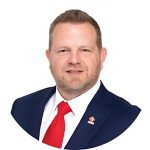 Toby Mathis is a 25-year tax attorney and founding partner at Anderson Advisors, whose career has focused on how to save money and how to make money. As a result of
Toby Mathis is a 25-year tax attorney and founding partner at Anderson Advisors, whose career has focused on how to save money and how to make money. As a result of
Anderson’s tax work with tens of thousands of successful investors including preparing over 100,000 investor tax returns, Toby has pieced together their methods to building wealth and now educates on the surprisingly simple processes.
Toby Mathis has helped Anderson grow its practice from one of business and estate planning to include a thriving tax practice and registered agent service
with tens of thousands of clients nationwide.
Toby also advances his client’s interests by combining expert tax advice with his personal experiences investing in over 200 real estate projects in the United States.
His expertise reaches many others through his award-winning publications, including Tax-Wise Business Ownership and Infinity Investing: How the Rich Get Richer and How You Can Do the Same. Toby continues his crusade daily to help investors and business owners preserve their wealth, protect it from lawyers, snoops, and Uncle Sam, and create amazing legacies for future generations.
Our sponsor, Tribevest provides the easiest way to form, fund, and manage your Investor Tribe with people you know, like, and trust. Tribevest is the Investor Tribe management platform of choice for Jim Pfeifer and the Left Field Investors’ Community.
Tribevest is a strategic partner and sponsor of Passive Investing from Left Field.


